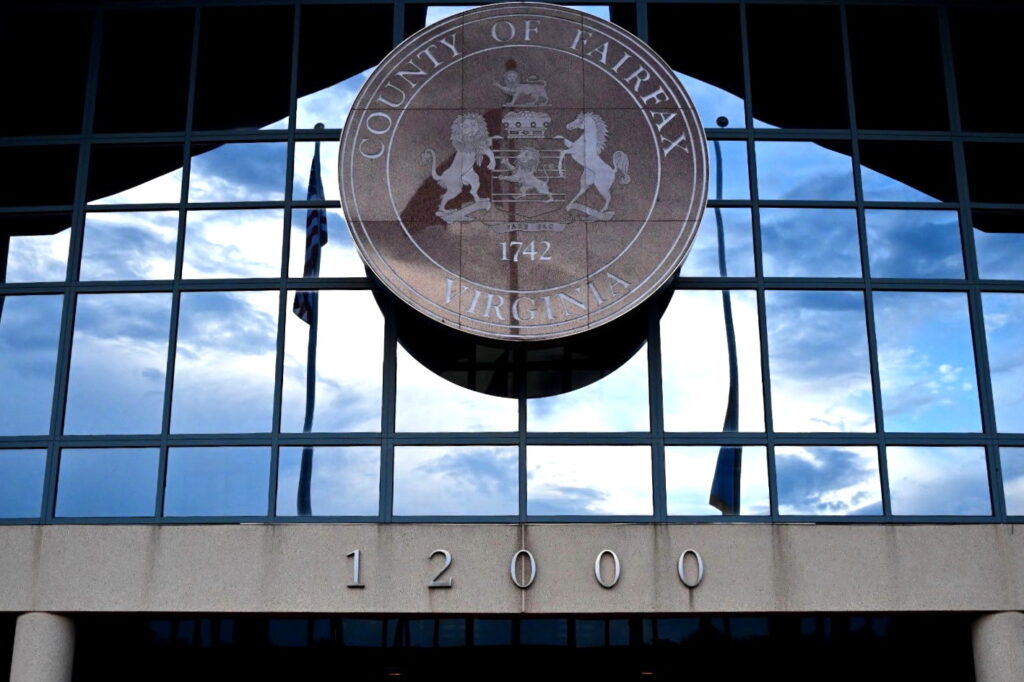County officials weigh options after Z-Mod is voided by the state Supreme Court

The Virginia Supreme Court’s ruling last week to throw out Z-Mod is causing a great deal of uncertainty on how Fairfax County will handle zoning decisions approved after the modernization of the Zoning Ordinance was adopted.
Planning Commissioners, supervisors, zoning staff, and county attorneys are evaluating the Supreme Court decision and determining the next steps.
“We’ll know more in a couple of weeks,” said Board of Supervisors Chair Jeffrey McKay. The issue is on the agenda for the Board of Supervisors’ April 11 meeting.
In the meantime, the Zoning Ordinance adopted in 1978 is in effect.
New zoning proposals have been put on pause. That’s the reason why a Planning Commission hearing on Parking Reimagined that had been scheduled for April 19 has been canceled, said at-large Commissioner Andres Jimenez.
Related story: Virginia Supreme Court throws out Z-Mod
The Board of Supervisors approved Z-Mod during a virtual meeting on March 23, 2021, during the Covid pandemic. It took effect on July 1, 2021.
The state Supreme Court decision says Fairfax County violated a state law that only allowed local governments to meet electronically during a declared emergency when the purpose of the meeting was aimed at addressing the emergency. The court determined Z-Mod was not related to the pandemic.
According to McKay, Fairfax County has three options in response to the Supreme Court ruling: (1) Redo Z-Mod; (2) have the General Assembly take action to retroactively validate zoning decisions approved under Z-Mod; and (3) petition the Virginia Supreme Court for a rehearing on Z-Mod.
County Executive Bryan Hill estimates the county approved 112 projects after Z-Mod took effect, but only about 60 were affected by Z-Mod.
Related story: Board of Supervisors approves zMOD
Land use attorney and former Fairfax County planner Mike Van Atta suggests the county will move to get Z-Mod re-adopted.
Only zoning decisions that specifically referred to provisions in Z-Mod that were not in the previous Zoning Ordinance would be affected, Van Atta said.
As an example, there is nothing in the previous ordinance that defined data centers, so any data centers approved after Z-Mod took effect would be invalidated. There aren’t any data centers in the pipeline for Mason District, but the county had approved a zoning application by Amazon Web Services to build one in Springfield
A longer-term solution would be “a legislative fix at the state level” to ensure the validity of a broader range of decisions made in virtual meetings, Van Atta said.
That’s needed, he said, because the Supreme Court ruling sets a precedent that would allow any actions taken during virtual meetings by local governments across the state to be challenged.

This Fairfax board pressed ahead to approve their z-mod project which they had been working on for years. They were told by many people it was not legal to do that under the terms of the COVID emergency. Changing 40 year old zoning code was not urgent, certainly not an emergency. They arrogantly ignored all the warnings. Did what they wanted and got caught. Now they would like legislative action to cover the mess the board made.
This board should be voted out for intentionally doing something illegal that has made a mess of zoning throughout the county going back two years.
The BoS consistently ignored and disregarded the concerns of many county residents who wrote letters/messages and attended virtual meetings to express concerns about many elements of the “streamlining” of the approval process for development projects. We urged the BoS to slow down and take time to really listen to our concerns and not proceed with such a massive overhaul of the zoning ordinances (I believe it’s over 600 pages) during the pandemic when people were in survival mode and weren’t able to focus on such a complicated proposal. We explained that not being able to meet in person put citizens at a real disadvantage for communicating. The speakers either could call in without being seen (and maybe not be heard if on cell phones) or had to submit pre-recorded videos in advance; speakers were blocked from commenting on anyone else’s remarks; speakers were unable to respond to staff’s statements, not to mention the technical glitches that occurred during the meeting when speakers couldn’t hear or be heard. Speakers were isolated from each other as well. The new zMOD zoning ordinance certainly streamlines the approval process which is a huge benefit for developers who were involved in many aspects of the proposal but at the expense of residents and the environment.
The Supreme Court ruling means that the BoS will now be required to hold open public in-person meetings but I hope they will actually listen respectfully to the concerns of residents who are directly affected by these projects and try to understand why there are concerns.
Quite a track record for Fairfax BoS… sneaky z-Mod; screwed up Lake Accotink; spiked property tax; defunded police … and gave themselves a 30% pay raise. Get them out ! And take a hard look at the staff who enabled this.